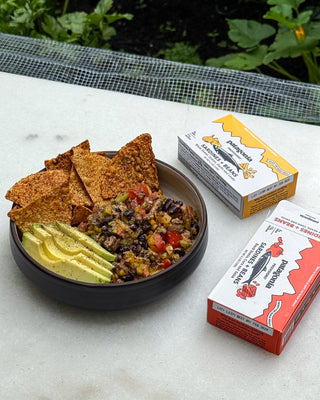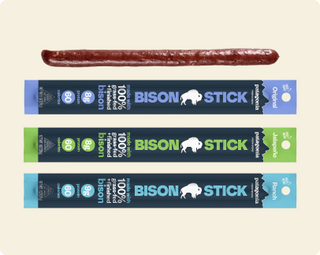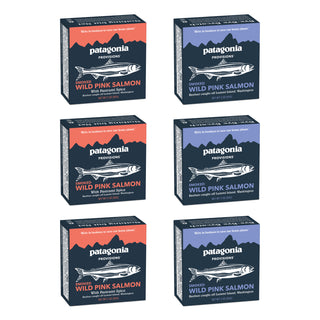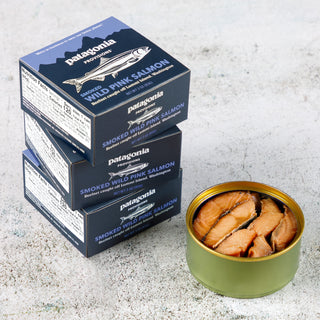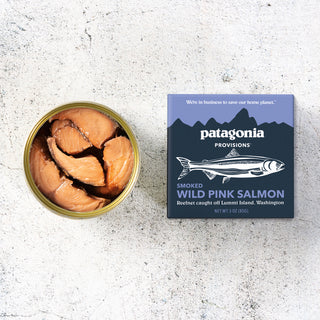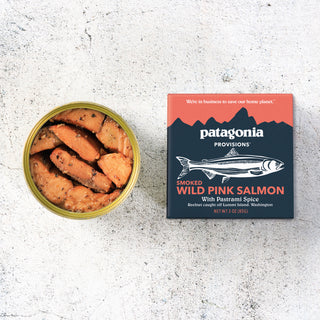Old drinking habits die hard
Changing perceptions is hard. Changing people’s spending habits is even harder – particularly when it comes to a product as popular and personal as beer. Be it the end of a long business day, some post-yard-work relaxation, or an occasion to celebrate, the majority of Americans hanker for the taste of their favorite brand. A 2023 Provoke Insights survey ranked beer as the alcoholic drink with the highest brand loyalty, so whether you’re into macro-produced light lagers or hoppy craft brews, chances are you have a preferred beer of choice. And the chances are even higher that that beer won’t be organic.
While the organic food market has blossomed over the last decade, with sales nearly doubling and most major supermarkets offering dedicated organic food sections, organic beer has so far failed to follow suit, making up just 1% of the market to date. With such limited production and without major brand recognition or strong PR, organic beer has a significant hill to climb to catch up with its edible counterparts. Now, Patagonia Provisions is partnering with Deschutes Brewery to take on this challenge, releasing the first nationwide organic non-alcoholic Beer and an organic lager.
“We wanted a beer for the Patagonia community. A beer that delivers on our values: exceptional quality and approachable taste, brewed with organic and regenerative ingredients that restore the environment, and widely available across the US for any occasion.”
– Paul Lightfoot, General Manager, Patagonia Provisions
Through a multi-faceted approach addressing the issues that have held organic beer production back so far, the collaboration will promote not just organic but Regenerative Organic Certified® ingredients across the industry, appealing to farmers, brewers, retailers and consumers.
A tall order? Yes. But before considering the how, let’s think about the why.

Photo by Whitney Whitehouse, courtesy of Deschutes Brewery
Beer is big business – with a big carbon footprint
Beer made up 41.8% of US alcohol sales in 2023, worth approximately $156 billion. Right now, 99% of that market is coming from beer that is not produced to meet either USDA or Regenerative Organic Certified® [ROC] standards – beer whose ingredients, brewing, packaging and distribution processes are not “sustainable” enough to achieve these standards. There are many reasons for this, which form a complicated web of challenges for breweries who might want to go organic.
Conventional beer production uses large quantities of valuable resources, including grain, water and energy, and its production leaves a significant carbon footprint. But, in production, as in consumption, change is hard. The key factors that have disincentivized breweries from producing organic beer include cost, supply and quality of ingredients, accessibility and distribution, competitive pricing and brand recognition. For example, commercial non-organic grains can be up to 6% cheaper than organic grains, and supply can be more reliable from a large-scale producer than a small organic farmer. Any costs or losses need to be covered by the brewery, forcing them to raise prices, which may discourage customers with less disposable income from purchasing the beer. Until recently, certain beer ingredients, particularly organic hops, were also considered inferior products whose flavors weren’t up to the standard of traditional varieties. And the question of loyalty also comes into play. A beer brewed with organic ingredients may taste different from the beers a brewery may be known for, and they may not want to risk alienating their core market who come for the same flavor experience every time.
In a market as competitive as the beer industry, where price, quality and brand recognition are all key factors in a brewery’s success, it’s understandable that some companies, particularly small ones, will be risk-averse towards change. However, growing awareness of the environmental impact of the beer industry, married with increasing customer interest in responsibly sourced products means that it’s now an ideal moment to launch the Patagonia Provisions and Deschutes organic brews. As issues of climate awareness and mindful purchasing make their way into the beer world, Patagonia has drawn on their extensive experience as the industry disrupters who pioneered the roll-out of an all-organic cotton clothing line. The collaboration with award-winning independent brewery Deschutes provides an accessible farm-to-glass beer that’s as palate-friendly as it is wallet-friendly.
From cotton to Kernza – levelling the playing field for organic products
Introducing a new product to any market is tough and the beer industry presents a specific set of challenges to organic producers. Fortunately for Patagonia Provisions and Deschutes, both companies bring deep experience in effecting change. Both companies are committed to environmental and social justice causes, as is third partner Topa Topa Brewing Co., whose version of the Organic Lager will be available exclusively in Southern California. All three brands have shown consistent ecological and community awareness, with environmental and civic involvement, including Topa Topa’s participation in the 1% For The Planet initiative, work with local and national nonprofits, and production initiatives to lower their carbon emissions.
“Beer is an agricultural product that relies on a healthy planet to produce. We believe that this project can serve as a valuable force for good in the fight to save our home planet.”
– Jack Dyer, CEO & Founder, Topa Topa.
For Patagonia, a significant inspiration for spearheading the beer-industry shift comes from the company’s decision to switch from conventional cotton to 100% organic virgin cotton in 1996. At the time, this was an unprecedented step from a major brand, and required significant internal investment and upheaval. This included creating new supply chains, rebranding, and repricing goods. Further investment went into educating staff and customers about the negative environmental impact of industrial cotton farming and the need to move the industry forward by supporting organic farmers. By absorbing some of the initial cost and minimizing what was passed on to consumers, Patagonia’s initiative paid off. While organic cotton still accounts for a small percentage of total cotton production, it has become an established segment of a market as large as 77 million bales in 2024. With a wide range of clothing companies now using 100% organic cotton Patagonia proved that you can create change by leading from the front, and that taking risks and supporting a responsible supply chain can and will succeed.

Photo by Tim Davis
It was this impetus to create and support a responsible supply chain in the beer industry that led Patagonia to launch their initial forays into organic beer production and distribution. Having branched out into the food and beverage industry over a decade ago, founder Yvon Chouinard saw the potential for changing the beer industry through organic and regenerative ingredients. Non-organic beers are typically brewed with barley and hops grown with synthetic fertilizers, which account for about 10% of agricultural emissions. Reducing that impact by brewing with organic ingredients can help protect our waterways, biodiversity, soil health, and the climate. To this end, Chouinard began collaborating with nonprofit research organization The Land Institute to commercialize what was then a newly domesticated grain from Western Asia called Kernza® perennial grain into a viable brewing ingredient. The goal? Reduce the significant soil damage caused by industrial grain production for beer.
“We want the brewing industry to make a seismic shift towards organic and regeneratively-grown ingredients. It’s overdue, and necessary, for the health of our planet. We can’t continue brewing beer – or any product, really – using crops grown with synthetic fertilizers and pesticides.”
– Paul Lightfoot

Photo by Amy Kumler
Kernza: Organic beer’s not-so-secret superhero ingredient
Kernza is the grain produced by perennial intermediate wheatgrass, originally used as a forage crop for livestock feed. The Land Institute chose Kernza for domestication in 2003 for multiple reasons, all of which have significant potential for reducing the negative environmental impacts of grain-based food and drink consumption. Perennial grains do not need replanting yearly like their annual counterparts, minimizing the impact of land tilling. They also have very deep roots, which can grow as far as ten feet underground. These anchor the soil, preventing erosion and improving its structure, as well as absorbing nitrogen that could otherwise threaten waterways. Kernza requires less water, fewer herbicides and less energy to grow than some annual grain systems, and can be grown on mixed-use land shared with livestock – another bonus for farmers.
Kernza’s roots are its greatest strength as a climate solution because in some soils they may have a far greater capacity to sequester carbon than annual grains with short roots. Kernza draws carbon from the atmosphere through photosynthesis and then stores it deep in the ground through its roots, effectively sucking up and disarming carbon emissions. According to non-profit Mad Agriculture, perennial grasses, like Kernza, can sequester 300 - 1,000 pounds of atmospheric carbon per acre per year. Pretty impressive stuff with a huge potential to reverse the environmental impact of grain farming - an industry that accounts for more than 70% of global cropland and calorie consumption.
Kernza also tastes great. While its original incarnation needed significant breeding to make it palatable for humans, The Land Institute’s version has a delicious nutty flavor not dissimilar to wild rice.
By choosing to invest in The Land Institute’s work domesticating the grain, Chouinard and Patagonia Provisions significantly reduced the amount of time it took for The Land Institute to create a commercially-viable grain for brewing. With Patagonia’s help, The Land Institute found growers and invested in specialized processing equipment, speeding up an anticipated 20 year process to just three years, gaining FDA approval in 2016. Since then it’s been all go with the first of Patagonia Provisions’ collaboration Kernza beer releases coming out the same year.
“We wanted to create a light backbone that allowed the flavor of Kernza to shine through, we’ve added hops that are complimentary to Kernza’s earthy and nutty flavor profile. The result is a beer that is bright, crisp and wildly drinkable.”
– Peter Skrbek, CEO Deschutes Brewery.
The beer project now supports over twenty local taproom partners across the US, including Arizona Wilderness, Bang Brewing, Aslan Brewing and Odell Brewing, all of whom have brewed with organic Kernza sourced from dedicated Kernza growers in the Perennial Promise Growers Coop. Taking the project nationwide so that everyone can have a taste is a natural next step. This will help to encourage the industry as a whole to move towards making organic beer and eventually Regenerative Organic Certified beer – by building up a drinking market.
“A national program is important to bring Kernza to market at scale. Climate and water quality are a big issue. If we are going to start making progress on both we are going to need to scale up the production of deep rooted perennials.”
– Luke Peterson, Board Member and Operations Committee Chair at Perennial Promise, and Owner, A Frame Farm

Making organic beer accessible and acceptable
As with the organic food industry, one of the main barriers preventing more drinkers from switching to organic beer has been an issue of accessibility – either through a cost barrier, a lack of easy physical access or both. By distributing in all fifty states and pricing a six-pack of both alcoholic and non-alcoholic Kernza brews at the same price as an average pack of craft beer (between $11.99 and $12.99), Patagonia Provisions and Deschutes are overcoming these barriers, placing high quality organic beer within reach of all beer lovers.
“We got into beer for the same reason we got into food: the US food system is dominated by industrial agriculture, which depletes soil, threatens our waterways, and contributes to the climate crisis. And beer is, after all, an agricultural product, too. As our founder Yvon Chouinard says, ‘People need a new jacket every few years, but they eat several times a day. If we’re going to save our planet, it starts with food.’”
– Paul Lightfoot
By taking on the challenging task of driving consumers and producers towards organic beer by leading with their own collaborative products, Patagonia and Deschutes are proactively navigating the industry issues that have prevented the growth of a strong organic beer market until now. By helping the market to expand, the project aims to increase the acreage of Kernza and other ROC grains to meet a greater demand for supply, leading to a positive impact on our environment. Here’s to brewing and drinking for good.
Ruvani de Silva is a travel-loving British Sri Lankan beverage and food writer based in Austin, Texas, with bylines including the Washington Post, Good Beer Hunting, VinePair and Modern Farmer. Her work focuses on sustainability, DEI, travel and culture. When she's not writing, you can find her trying to recreate her favorite dishes, cocktails and beers in her kitchen or curled up with a good book. Find her @amethyst_heels and ruvanidesilva.com.

